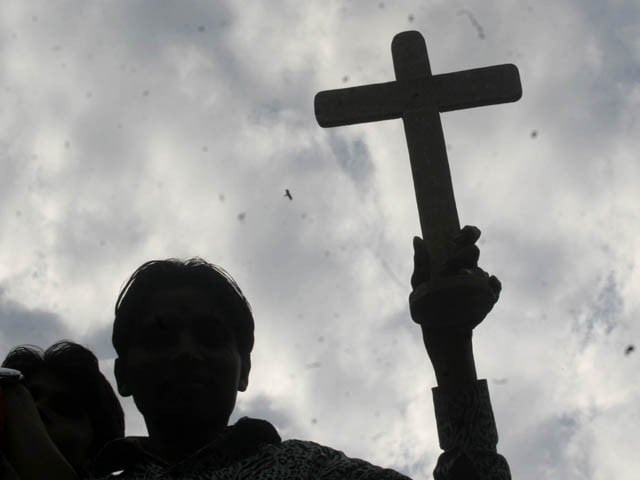Ensuring minority rights: Politicians, activists call for change in constitution, state policies
18th Amendment an extension of discriminatory policies, says rights advocate

Jamiat Ulema-i-Islam-Fazlur Rehman (JUI-F) MNA Aasiya Nasir said discrimination was embedded in the constitution and minorities face forced conversions, forced marriages and blasphemy related matters among other issues. PHOTO: ATHAR KHAN/EXPRESS/FILE
According to a survey by Pattan Development Organisation conducted in Multan, Faisalabad, Lahore and Islamabad using 1,200 participants, non-Muslim Pakistanis face discrimination in almost all areas of life.
Pattan National Coordinator Sarwar Bari told The Express Tribune that the survey was divided into two stages.
Firstly, we conducted group and individual interviews of elected representatives as well as government officials, followed by ordinary citizens, media persons and members of minority community and individuals belonging to various non-governmental organisations (NGOs), Bari said.
We provided 41 statements and sought opinion of the people, he said
More than 70 per cent participants of the discussions consisted of Muslims, while 20-30 per cent belonged to various non-Muslim communities, Bari said.
Stressing role of political leaders, he said that the study showed public was keen to see change.
While talking to The Express Tribune, a social activist, Romana Bashir said that there was a need to revisit all those policies which were discriminatory towards non-Muslim citizens. She said that the rights of the minorities could not be ensured without show of political will.
Bashir termed 18th Amendment as an extension of discriminatory policies. “Some political groups pressurised the government to include a clause that a non-Muslim cannot be prime minister,” she elaborated.
Jamiat Ulema-i-Islam-Fazlur Rehman (JUI-F) MNA Aasiya Nasir also said that discrimination was embedded in the constitution and it was time to revisit it.
She said that though there was invisible discrimination too in the society but in economic terms, minorities were at their nadir due to state policies.
Nasir said that the five per cent job quota announced by the government for the minorities was just eyewash.
She said that the political parties needed to review the manifestoes and there was a need to prioritise issues related to minorities.
Nasir said that the minorities had been confronting a number of issues including forced conversions, forced marriages, blasphemy related matters and there was an immediate need to end all such discrimination.
Muslim-Masihi Ittehad Chairman Samuel Yaqub said that the Christian community feared misuse of the blasphemy laws and it was unfortunate that the state was unable to take any action to address the issue.
He said that the political parties should select minority candidates who are “truly” their representatives.
Yaqub stressed the need to reform the academic curricula by removing hate material.
Pakistan Hindu Council Patron-in-Chief Dr Ramesh Kumar Vankwani said that the political parties were not sincere about resolving the problems of non-Muslim citizens.
“We have been fighting in vain for a Hindu marriage bill for a long time. Our girls are being kidnapped and forcibly converted to Islam, yet no one is genuinely concerned except people from our own community,” he said.
He said that the minority representatives should be selected through elections instead of on reserved seats.
While talking to The Express Tribune, Scheduled Caste Rights Movement Pakistan (SCRM) Chairperson Ramesh Jaipal said that there was an immediate need to remove all hate material from textbooks and for improving interfaith harmony. He said that the courts, political parties and the civil society should join hands to end discrimination.
“The country is faced with serious problems of militancy, terrorism and extremism and the state should act now against all discriminatory practices,” Jaipal said.
Published in The Express Tribune, January 22nd, 2015.



















COMMENTS
Comments are moderated and generally will be posted if they are on-topic and not abusive.
For more information, please see our Comments FAQ